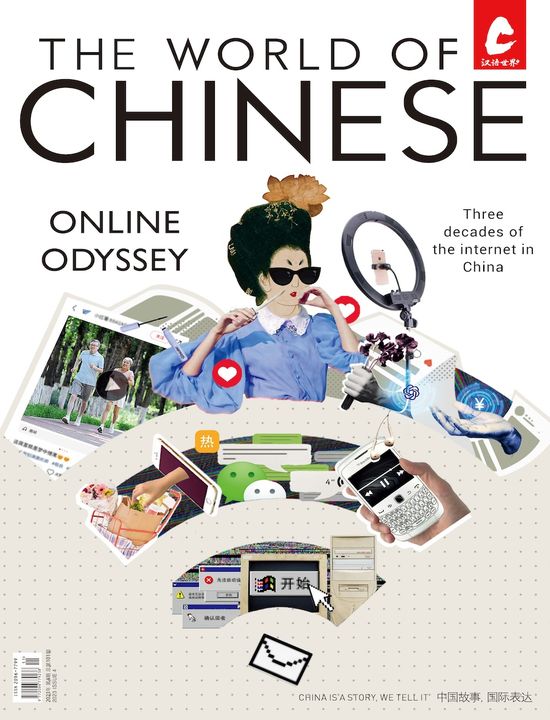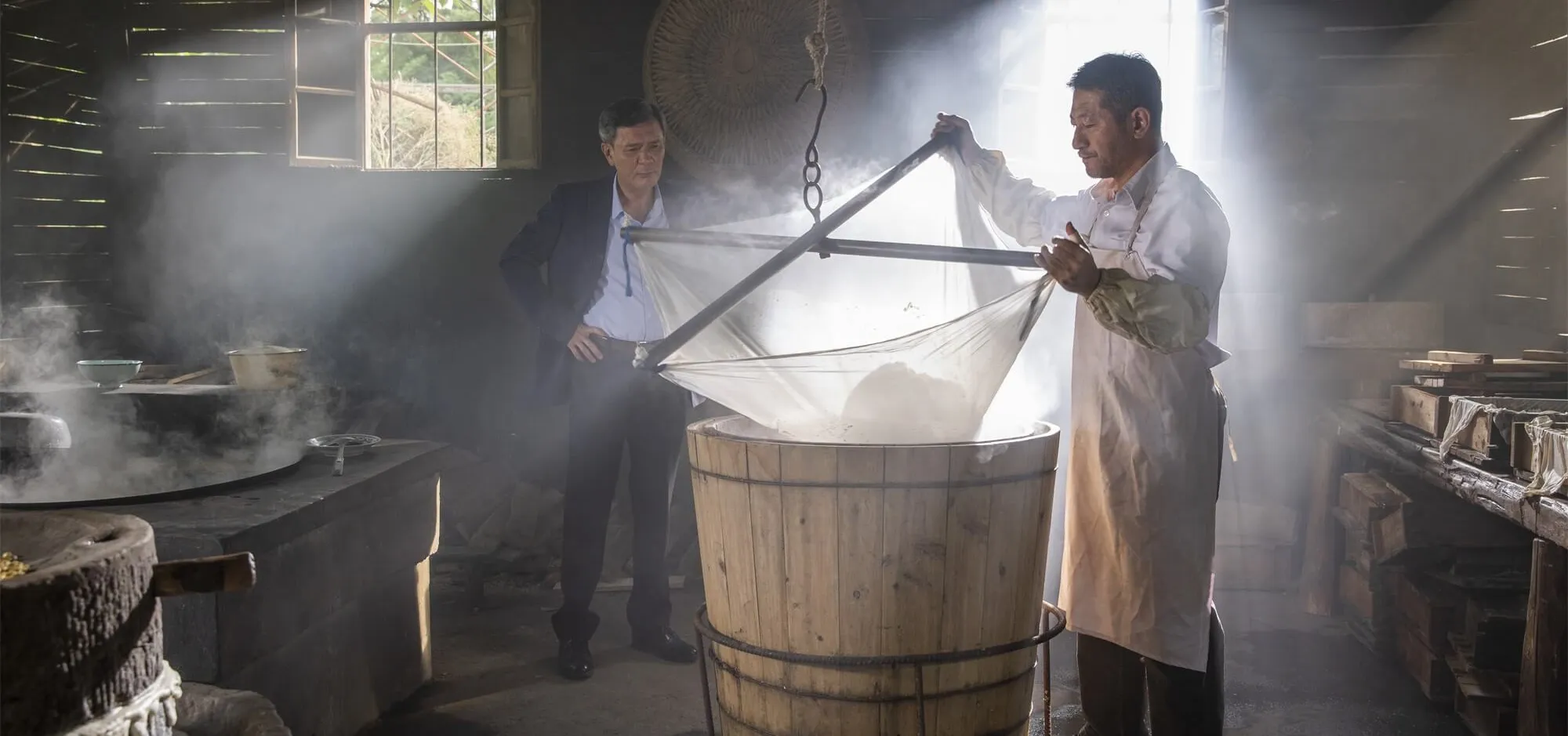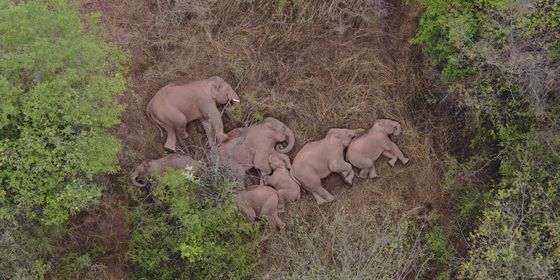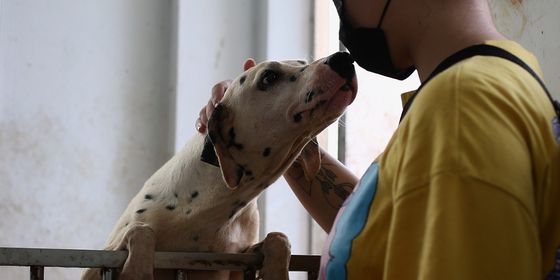With a childhood spent working day and night making tofu, a young man reflects on the changes his family and the society went through
Shenwei, the writer of ”My Mother Ran a Street Stall for 13 Years, Eking Out a Living on the Margins,” tells another side of the story of his family’s small business.
***
Online shopping did not truly begin to spread across my hometown of Jicheng, Gansu province, until around when I finished middle school. Trends always take longer to reach our small county town in the depths of China’s Northwest. Online retail platforms—think Taobao and JD.com—only became popular here after 2015.
In Jicheng, agriculture is a small-scale affair, while industrial production has almost entirely vanished. The town relies on a lively network of family-run stalls and workshops. Run at a relatively low cost from residents’ own homes with every family member enlisted, these workshops represent a ticket out of financial vulnerability for many households in the county.
This was the true, hidden force of our local industry. In Jicheng, a myriad of family-run shops specialized in all sorts of retail—mustard and flaxseed oils, halal foodstuffs such as baiji mo (白吉馍, a kind of round wheat bread baked over a fire), hand-pulled noodles, soy and mung bean products, and even sewed items such as hemp shoes. Customers favored the mountain goods market or the street markets on Xiguan and Dongguan St over supermarkets, and sometimes they would even drop by the vendors’ homes. Of course, these primitive, simple businesses show up nowhere in the official GDP, but they’ve sustained local economies in China’s small towns for thousands of years.
Where are the roots of China’s industrial civilization? Perhaps, they’re right there in the family shops in the meandering back alleys. Among them is my Dad’s tofu business.
1/7
Dad didn’t have any know-how when he started making tofu. He had been a long-distance driver until an accident landed him in serious debt. He needed a new occupation, which is how some acquaintances got him in touch with a guy making tofu in town. Mom recalls that the man hailed from Sichuan, where his kids lived and had reached school age. Otherwise, why pack it in and pass his knowledge onto someone else?
The tofu guy started by showing my father the ropes, without actually talking him through it. Much like most artisans, he was not keen to show all his cards at once. Whenever he did offer feedback in his thick Sichuan accent, my dad was usually none the wiser. In any case, Dad got the message after a while. Because he’d paid tuition and now there was no way out, he got over his initial embarrassment, gritted his teeth, and bought two packs of fine cigarettes. For each question he raised to his master, he offered tobacco and tea, one smoke and cup at a time, but even these pleasantries earned him a little over half of the guy’s savoir faire.
You could hardly say that my dad nailed it at the beginning. His tofu brine was past its prime, or he’d mixed in a little too much calcium sulfate a, a widely used tofu coagulant. He had yet to grasp the right amount of water to use, so the resulting slurry was either too thin or too thick. Both to the eyes and to the palate, Dad’s tofu was a disappointment. “What a waste of soybeans,” my mother would declare before making us all eat our fill of faulty tofu for breakfast, lunch, and dinner. Boy, did that make me hate tofu.
With the pressure to make money, though, Dad could only afford so many rounds of trial and error. He poured himself into the trade, and soon enough, his master was finally approving of his craft. My sister and I sure were thrilled to see tofu off the family table.
***
In 2006, already marching to the beat of his own drum, Dad dug up a small vegetable garden on the west side of our old courtyard house, where he built a small factory out of mud and bricks, dragging inside a soy milk maker before welding a steamer all by himself. The rest consisted of inexpensive tools—bamboo partitions, gauze fabric, wooden racks, hoisting jacks, and so on.
A day of work in summer began by 3 am, when the alarm clock woke Dad up to soak the soybeans. On warm days, it didn’t take long to hydrate the beans, but over-soaking the beans would make it hard to extract the slurry later. On winter days, he could put the beans in water before bed, but had to wake up at 5 or 6 am to deal with them. The freezing cold could bite one’s ears off.
In the Northwest, all year long, early morning soybean grinding is also quite a grind on the tofu maker. It requires fast hands and wits, with one person doing the job of three. The soy milk maker burns if you leave it to churn without beans. Often, the machine is running out of soaked beans, but as soon as you add more, it’ll be time to empty out the full soy milk bucket. After three buckets of soy milk, the grinding disc will be overflowing with bean dregs to be cleaned, but the boiler is bubbling with a hundred kilograms of cooked soy milk ready to be switched out, otherwise it’s just wasting fuel. No distractions are allowed when you’re doing this precisely interlinked series of tasks.















